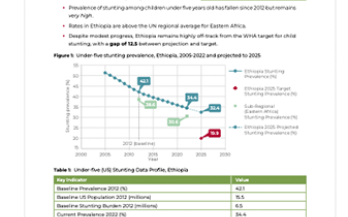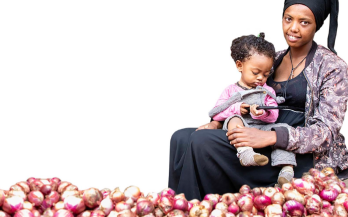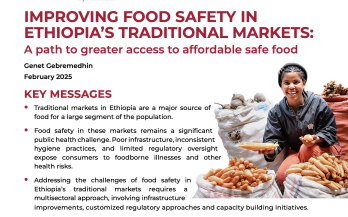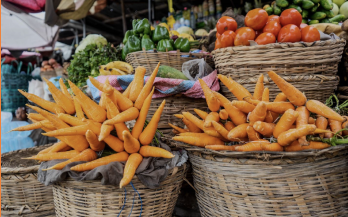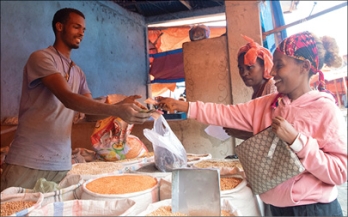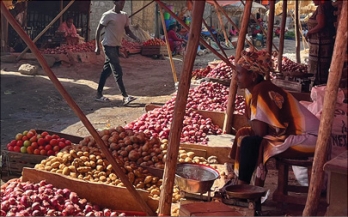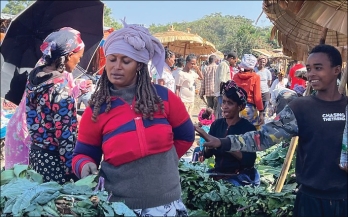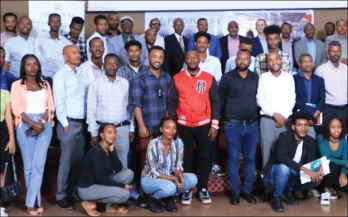WHA Global Nutrition Stunting Target 2012-2025
Achieve a 40% reduction in the number of children under-5 who are stunted
WHA Global Nutrition Overweight Target 2012-2025
Ensure that there is no increase in childhood overweigh
These fact sheets look at the roles that can be played by different stakeholders seeking to improve food systems and nutrition in Ethiopia.
• Stakeholders from diverse groups have a role to play in transforming Ethiopia’s food system to address complex challenges arising across the supply chain that contribute to food insecurity and malnutrition.
• Each stakeholder group must take steps towards enhancing collaboration, aligning efforts, and working to deliver a more sustainable and resilient food system for the country.
• Key recommendations include strengthening government commitment, mobilising financial and technical resources, building capacity across different groups, setting up accountability mechanisms, boosting inclusivity of decision-making processes, leveraging technology and innovation, and conducting periodic assessments to identify emerging challenges and opportunities.
Human capital is the bedrock on which companies build their success. In Ethiopia's food-processing industry, the capacity and skill of its workforce and entrepreneurs determine the trajectory of the sector. GAIN Ethiopia works to cultivate conditions conducive to private sector growth, from farm to point of sale – by supporting the development of a capable workforce.
Neural Tube Defects (NTDs) occur when the neural tube doesn't close properly during the first month of a mother’s pregnancy. This can result in a range of physical and cognitive disabilities, often requiring extensive medical care, including surgeries, ongoing treatments, and rehabilitation.
When the Government of Ethiopia (GoE) approved policies making the fortification of wheat flour and edible oil mandatory in Ethiopia in June 2022, the country took a leap in its decade old battle to employ fortification as a means of increasing consumption of micronutrients. The GAIN Large Scale Food fortification Programme aims to provide populations with the basic #micronutrients, also known as vitamins and minerals, that they need for brain, physical and healthy development. In line with this, in Ethiopia, GAIN is working with government and the private sector to move forward the mandatory fortification of wheat flour and edible oil.
As part of EatSafe's effort to evaluate the impacts of food safety behavior change interventions, this report summarized food safety behaviors and behavior drivers across four food safety macro-indices, assessed via structured surveys of vendors and consumers in Hawassa, Ethiopia.
EatSafe collected samples of three nutritious commodities to assess the relative exposure and risk of foodborne illness from consuming tomatoes, kale, and lettuce sold in traditional food markets in Southern Ethiopia.
To increase consumer demand for improved food safety, EatSafe is testing three interventions that seek to change consumers and vendor behaviors in a traditional food market in Hawassa, Ethiopia.
At an event of over 80 participants, EatSafe in Ethiopia commemorated World Food Safety Day and its 2023 theme, food standards save lives.
